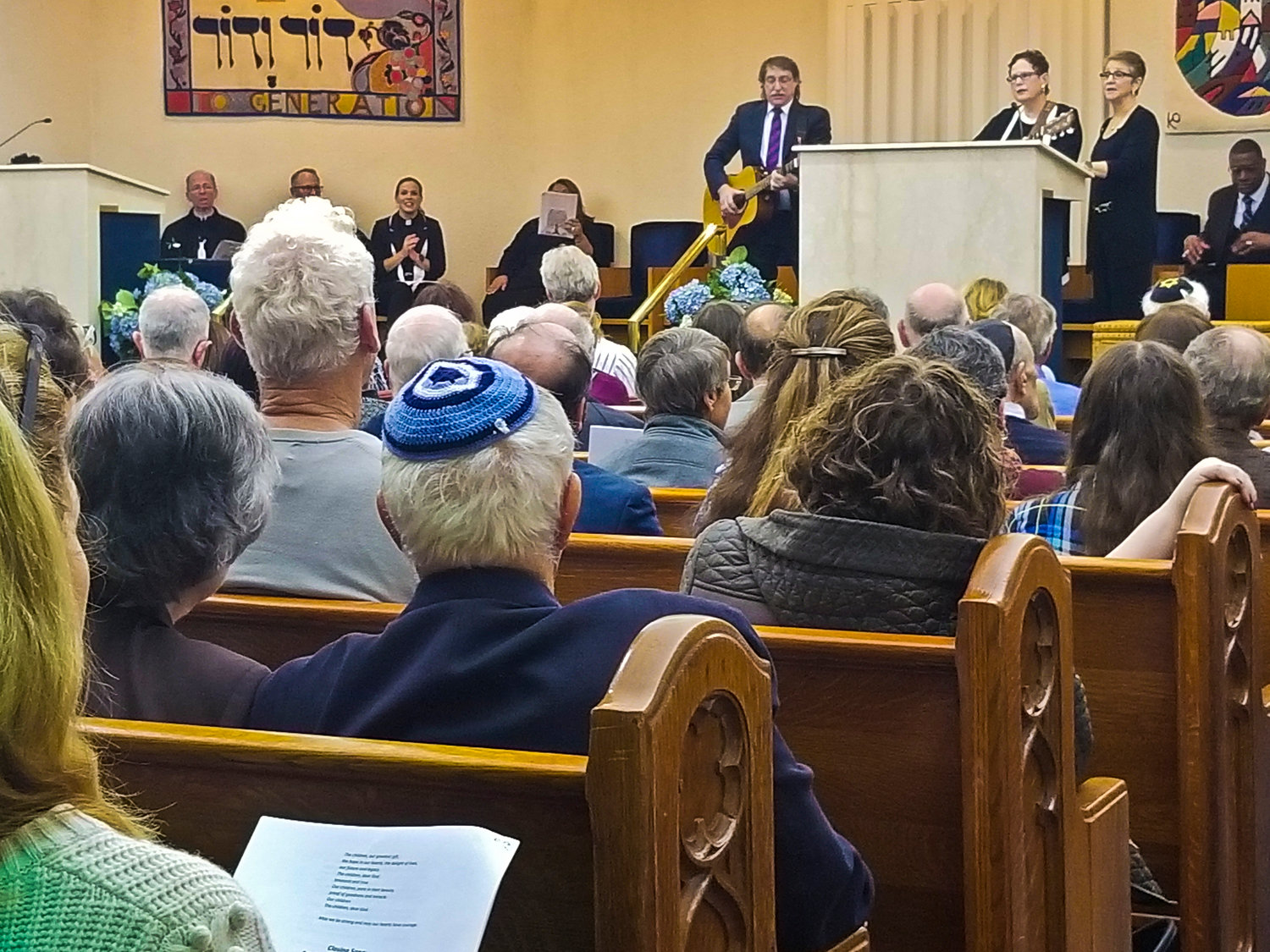In Glen Cove, Interfaith clergy react to the Shabbat shooting in Pittsburgh
‘We are not alone in this’
“We can’t allow ourselves to become numb to tragedies.” North Country Reform Temple Rabbi Janet Liss’s voice rang clear in the crowded sanctuary. “We deserve better than this.”
Hundreds of attendees of various faiths and denominations gathered at the temple on Tuesday evening for an interfaith memorial service prompted by the Shabbat-morning massacre of 11 members of the Tree of Life Congregation synagogue in Pittsburgh. And while the service centered on the shooting — which the Anti-Defamation League has called the largest anti-Semitic attack in U.S. history — those who led it did not hesitate to attribute the tragedy in part to the country’s increasingly virulent political rhetoric.
“I come here tonight to serve notice,” said the Rev. Roger Williams, of the First Baptist Church of Glen Cove. “Words of comfort are needed, but a direct finger at the problem is essential.”
When President Trump unabashedly call himself a “nationalist” at a recent campaign rally, Williams said, “He was bringing forth an old idea that has served to undergird slavery, segregation and the justification for the evisceration of our Jewish brothers and sisters.” Williams further took aim at what he considered a fundamentalist theology aimed at divisiveness rather than unity. “I want us, tonight, to look to that which brings freedom, joy, peace, love and uplift,” he said. “Not that which tells us who doesn’t belong. All of us belong.”
Several clergy members, including Liss, called for stronger gun-control laws. Responding to Trump’s claim in the aftermath of the Pittsburgh shooting that the shooting might have been prevented if the synagogue had had an armed guard, Liss said, “I will not accept the premise that every church and every synagogue should have armed guards to protect our right to worship as we please.” Her words were met with enthusiastic applause.
The Rev. Kally Elliott, the pastor at Glen Cove’s First Presbyterian Church, spoke of grappling with her faith in times of tragedy. “It can make us feel like maybe we’ve been abandoned to the wilderness, without this God that we’re commanded to love,” she said, adding, “I know nothing I say can relieve your pain. Nothing I can do will quell your fear. But I do know this: We are not alone tonight.”
Toward the end of the service, those assembled in the sanctuary read aloud a version of the Kaddish — a solemn Hebrew prayer reserved for times of mourning — adapted by Rabbi Paul Kipnes for the increasingly common instances of mass killings. The updated version, which is interspersed with English meditations, is titled, “A Kaddish After Gun Violence: For When Humanity Fails Itself.”
The Pittsburgh shooting was the 294th such incident this year in the United States. A mass shooting is defined as four or more individuals being shot or killed in the same general time and location.
The Anti-Defamation League has reported that anti-Semitic incidents in the United States rose by 57 percent in 2017, from 1,267 in 2016 to 1,986. It was the largest increase since the ADL began tracking in 1979. Only once since 1979 has the ADL recorded more incidents: 2,066 in 1994.







